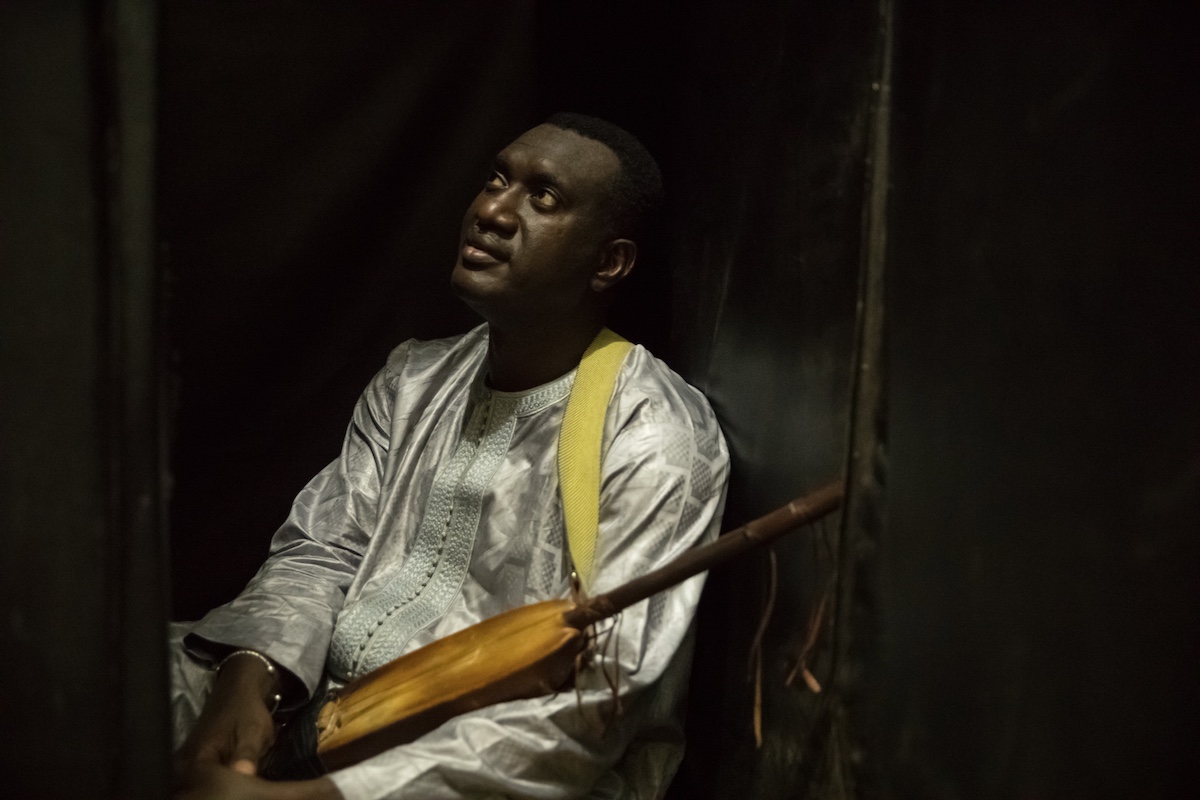
Bassekou Kouyate: the Malian maestro who has both defied and honoured musical tradition
Bassekou Kouyate’s intellectual heritage, comprising a musical craft and oral history involving matters cultural, social, political and familial, is said to stretch back thousands of years – ‘to before Christ,’ in the case of his instrument and ancestry, as Bassekou told the Guardian in 2015. A descendent of griots on both sides of his family, Kouyate’s inherent role was to involve learning the music and history passed on from his father, before conveying that knowledge to a wider community through his recitals, adding to it his own experiences and ultimately, passing his knowledge down to his own descendents.
Where Bassekou differs from the griots that preceded him in his family line, is that he is the first to have been afforded the opportunity, through technological developments, increase in international travel and so on, to extend the riches of his heritage to people throughout the world.
Over a professional career spanning four decades, he has done so with consummate class, becoming known as one of the finest jeli ngoni players in the world. His instrument is historic: a small West African design often compared to the banjo, but with a mellower tone and a body closer in shape to a lute than banjo. In Bassekou’s hands, the jeli ngoni is shown to be a most expressive instrument. From his emotive vibrato to his fast melodic runs and the spectral glides he achieves with use of a wah-wah pedal, he draws from the instrument a mellow tone and energetic intent.
His playing has seen him nominated for a Grammy award and made him the first instrumentalist inducted into the Afropop Hall of Fame. With his band, Ngoni Ba, he introduces us to two other tones and timbres of the ngoni: Abou Sissoko playing the medium-range ngoni (a sound slightly lower than Bassekou’s bright lead jeli,) and Mamadou Kouyate playing ngoni bass, a non-traditional take of the ngoni, which Bassekou felt was necessary with the amplification of the instruments to mirror a more conventional electric bass sound, while retaining the tone and timbre of an ngoni.
Alongside the ngoni players are two percussionist and Bassekou’s wife, Amy Sacko on vocals. Family is of great importance to Bassekou and many of his family feature or have featured in his band over the years: another first differing from griot tradition.
Bassekou Kouyate will release his new album Miri this month, a record made at studio MBK in Bamako, Mali and featuring artists such as Habib Koite and Abou Sissoko, in addition to his core band. Although his 2013 album, Jama Ko, was made while a coup d’état was taking place (the gunfire audible from their studio according to Bassekou in a 2013 interview) the making of Miri appears to have been a more peaceful affair, even if power cuts threatened to occasionally derail recording.
Bassekou’s new record arrives on 25th January, days before his performance at Liverpool’s Philharmonic Music Room on 30th. You won’t often get the opportunity to see an artist who is the living embodiment of thousands of years of musical history, an accomplished, conscientious and ambitious musician who has upheld tradition and diverged from it as well. His Liverpool show is certain to be a life-affirming experience and one we heartily recommend.







